GENERAL DATA
Plant parts: Seed, Leaf
Cultivation mode: Wild collection\Cultivated
In manufacturing: Pharmaceutical, spice, alcoholic drink, perfumery, shampoo, haircare, skincare, soap, oil, extract.
In food: Food, herbal tea.
🌿 Industries That Use Fennel Seeds (Foeniculum vulgare Mill.)
Fennel seeds are rich in flavonoids, essential oils (such as anethole), fiber, and minerals like potassium, iron, and calcium. Their distinctive sweet, licorice-like flavor and medicinal properties make them valuable in a wide array of industries.
1. Food & Culinary Industry
Fennel seeds are a common ingredient in global cuisines, known for their sweet, slightly peppery flavor and digestive benefits.
Applications:
-
Seasoning for savory dishes, such as curries, soups, and stews
-
Used in bakery products, including bread, cakes, and cookies
-
Essential in spice blends like Chinese five-spice and Indian garam masala
-
Popular in teas, infusions, and digestive drinks
-
Added to candies, chewing gum, and breath fresheners for a sweet aftertaste
✅ Available as whole seeds, ground powder, or essential oil for flavoring
2. Nutraceutical & Herbal Medicine Industry
Fennel seeds are recognized for their medicinal properties, including their ability to aid digestion, reduce bloating, and support respiratory health.
Applications:
-
Incorporated into digestive health supplements for gas, bloating, and indigestion
-
Appetite-suppressing formulations and weight management products
-
Added to baby care products to relieve colic and stomach cramps
-
Used in teas and tinctures for anti-inflammatory, antioxidant, and antimicrobial properties
✅ Standardized fennel seed extract for its active compound, anethole, used in capsules and functional foods
3. Beverage Industry
Fennel seeds are popular in herbal teas and functional beverages due to their digestive and soothing properties.
Applications:
-
Used in herbal teas, often combined with Chamomile, Peppermint, or Ginger for digestive support
-
Added to sparkling waters, detox drinks, and health shots
-
Popular in Indian-inspired beverages, such as fennel lemonade or spiced milk drinks
✅ Often sold as part of tea blends in health food stores and supermarkets
4. Cosmetic & Personal Care Industry
Fennel seed extracts are used in skincare and haircare products due to their anti-inflammatory, antioxidant, and moisturizing properties.
Applications:
-
Incorporated into anti-aging creams, facial masks, and serums for skin rejuvenation
-
Used in shampoos, conditioners, and scalp treatments to promote healthy hair growth
-
Added to soaps and body lotions for their cleansing and refreshing effect
✅ Fennel seed oil is used in massage oils for its soothing properties
5. Pharmaceutical Industry
Fennel seeds are an essential ingredient in herbal medicine for digestive, respiratory, and antioxidant health.
Applications:
-
Used in syrups, tinctures, and capsules for digestive support
-
Expectorant formulations for cough and congestion
-
Utilized in antibacterial and anti-inflammatory preparations
✅ Fennel seed oil is extracted for its volatile oils used in antimicrobial formulations
6. Ethnic & Export Markets
Fennel seeds hold strong cultural and culinary significance in Middle Eastern, Indian, and Mediterranean cuisines and are often sold in ethnic markets around the world.
Applications:
-
Popular in spice markets for use in traditional dishes
-
Used in ethnic desserts, candies, and spiced snacks
-
Exported in bulk to Asia, Europe, and North America
✅ Sold in whole or ground forms for both retail and bulk export
✅ Summary of Key Applications
| Industry | Common Uses |
|---|---|
| Food & Culinary | Seasoning, spice blends, teas, baked goods, candies |
| Nutraceutical & Herbal | Digestive support, appetite suppressant, infant colic relief |
| Beverage | Herbal teas, detox drinks, health shots, spiced beverages |
| Cosmetic & Personal Care | Anti-aging, skincare, haircare, soaps, massage oils |
| Pharmaceutical | Digestive aids, expectorants, anti-inflammatory |
| Ethnic & Export Markets | Spices for traditional cooking, candies, retail and bulk exports |
🌟 Key Features of Fennel Seeds
-
Rich in anethole, flavonoids, fiber, and essential oils
-
Anti-inflammatory, antioxidant, and digestive benefits
-
Popular in both culinary and medicinal contexts worldwide
-
Available in whole, powdered, or oil form
-
A multifunctional ingredient for food, wellness, and cosmetics
🌿 Industries That Use Fennel Leaves (Foeniculum vulgare Mill.)
Fennel leaves—also known as fennel fronds—are feathery green herbs with a sweet, licorice-like aroma. Rich in volatile oils, antioxidants, and chlorophyll, they are appreciated across culinary, health, and cosmetic industries, especially in fresh or dried form.
1. Food & Culinary Industry
Fennel leaves are a flavorful herb used to enhance the aroma, freshness, and visual appeal of dishes.
Applications:
-
Used fresh in salads, soups, fish dishes, and vegetable stews
-
Finely chopped and added to sauces, herb butters, and dressings
-
Used as a garnish in Mediterranean, Indian, and Middle Eastern cuisines
-
Blended into herbal pestos or yogurt-based dips
✅ Available fresh, freeze-dried, or air-dried for culinary purposes
2. Herbal & Traditional Medicine
Fennel leaves have a long-standing role in folk medicine for their digestive, carminative, and mild diuretic properties.
Applications:
-
Used in herbal teas for bloating, flatulence, and digestion
-
Part of women’s health infusions and cleansing formulas
-
Applied in herbal poultices for topical anti-inflammatory effects
✅ Often combined with Mint, Lemon Balm, or Coriander in folk infusions
3. Nutraceutical & Wellness Industry
Though less common than the seeds, fennel leaves are used in green powders and detox blends.
Applications:
-
Dried and powdered for alkaline detox products
-
Used in cholesterol-lowering and digestive support formulations
-
Included in green drink mixes or herbal fiber blends
✅ Marketed as part of leafy-green antioxidant sources
4. Cosmetic & Skincare Industry
Due to their chlorophyll, antioxidant flavonoids, and essential oils, fennel leaves are explored for skin-refreshing and detoxifying applications.
Applications:
-
Added to facial toners, steam blends, and herbal masks
-
Used in anti-acne, anti-blemish, and soothing skincare products
-
Infused into cleansing bars or herbal compresses
✅ Natural anti-inflammatory and antimicrobial effects from fresh leaf extract
5. Pet & Animal Health Industry
Fennel leaves are sometimes used in herbal formulations for pets and livestock due to their digestive and freshening properties.
Applications:
-
Incorporated into natural animal feed blends for digestion
-
Used in herbal worm prevention strategies for ruminants
-
Added to herbal sprays for calming or odor control
✅ Especially valued in organic farming and natural animal care
✅ Summary of Key Applications
| Industry | Common Uses |
|---|---|
| Food & Culinary | Fresh herb in salads, soups, fish, sauces, and garnishes |
| Herbal Medicine | Digestive teas, women’s health blends, topical applications |
| Nutraceutical | Detox powders, digestive green blends, wellness supplements |
| Cosmetic & Skincare | Facial steams, herbal masks, anti-inflammatory cleansers |
| Pet & Animal Health | Digestive aid in feeds, herbal sprays, natural wormers |
🌟 Key Features of Fennel Leaves
-
Feathery green leaves with anise-like aroma
-
Contains anethole, chlorophyll, flavonoids, and vitamin C
-
Used fresh or dried in culinary and wellness formulations
-
Acts as a digestive, carminative, and mild antimicrobial
-
Offers culinary, cosmetic, and nutraceutical versatility
📊 Comparison Table: Fennel Seeds vs Fennel Leaves
| Aspect | Fennel Seeds | Fennel Leaves |
|---|---|---|
| Plant Part | Dried seeds (fruit) | Fresh or dried feathery fronds |
| Appearance | Small, oval, green to brown seeds | Thin, soft, thread-like green leaves |
| Aroma & Taste | Sweet, warm, anise-like, licorice flavor | Mild, fresh, grassy-anise flavor |
| Key Phytochemicals | Anethole, fenchone, flavonoids, fiber, essential oil | Anethole, chlorophyll, flavonoids, vitamin C |
| Main Actions | Digestive, carminative, antimicrobial, appetite regulation | Mild digestive support, anti-inflammatory, antioxidant |
| Culinary Uses | Spice in curries, breads, teas, pickles, sweets | Fresh herb for garnishing, soups, sauces, dips |
| Traditional Medicinal Use | Gas, bloating, indigestion, colic, hormonal balance | Mild digestive issues, cleansing teas, herbal poultices |
| Nutraceutical Applications | Capsules, digestive teas, metabolic health supplements | Included in detox powders, green blends, teas |
| Cosmetic Applications | Rare in cosmetics (essential oil may be used) | Leaf extract used in masks, toners, anti-acne products |
| Pet & Veterinary Use | Natural deworming blends and feed additives | Digestive aid in animal feed, herbal sprays |
| Availability | Widely available in dried bulk or powder form | Mostly fresh, or freeze-dried/dried form |
| Potency & Flavor Impact | Strong, concentrated flavor | Delicate, fresh flavor – used in larger quantity |
| Preservation | Long shelf life when dried | Perishable when fresh; short shelf life |
✅ Summary Notes
-
Fennel Seeds are stronger and more potent, used for digestive and metabolic support, as well as flavoring in spice blends and herbal supplements.
-
Fennel Leaves are milder and fresher, used for culinary garnishing, cleansing herbal infusions, and cosmetic skin-soothing applications.
PRODUCT NAME IN DIFFERENT LANGUAGES
Persian Name: رازیانه/ Razianeh
German Name (Deutschland, Austria, Switzerland): Fenchel, Fenchelsamen
French Name (France, Belgium, Switzerland, Quebec): Fenouil, Graine de Fenouil
HARVEST CALENDAR
Feb
Mar
Apr
May
Jun
Jul
Aug
Sep
Oct
Nov
Dec
To order Fennel seed, please contact us.
About Foeniculum Vulgare
Foeniculum vulgare is a herbaceous, annual and aromatic plant whose height reaches one and a half meters. On the stems of the fennel plant, small, longitudinal and parallel grooves can be seen. The main stem of the Foeniculum vulgare is white and very thick at the junction of the plant with the ground. The leaves of the Foeniculum vulgare are branched and finally divided into short, needle-shaped and relatively thin parts. These leaves are fragrant and sweet.
The flowers are yellow and very small and grow in the form of umbrellas at the end of the secondary stems. The seed of Foeniculum vulgare is small, elongated, relatively curved, light green and sometimes yellowish, and several longitudinal grooves can be seen on it. The Foeniculum vulgare looks like Anise (Pimpinella anisum L.), but it is bigger and brighter. It also has a sweet and spicy taste and a pleasant aroma. The root of this conical plant is pale brown and fragrant.
Foeniculum Vulgare Chemical Constituents
The fruits contain fixed oil (12%), proteins, a volatile oil (1-4%) and phenolics. The principal component of volatile oil is a phenolic ether, anethole (60%) followed by the ketone, fenchone (10-30%). Other components of oil are methyl chavicol, limonene, a-pinene etc. The phenolics include furanocoumarins (imperatorin, bergaptene, and xanthotoxol), stilbene trimers (miyabenol C and cis-miyabenol C and the glycosides of the latter such as foeniculosides 1-4) and flavonoids. Also present are monoterpene glycosides, viz., foeniculosides V-IX, and other compounds such as zizybeoside I, icaviside A, syringin, sinapyl alcohol, adenosine and anethole glycol.
Fennel Leaf Temperament
Hot and dry.
Fennel Seed Health Benefits
1. Pound 15 to 30 grams of Aniseed-Weed seed and boil it in a liter of cold water for one minute, then brew for 10 minutes, then strain it and sweeten its tea with sugar or honey and drink a cup after each meal. It repels “ascaris worm”, it repels kidney and bladder stones, it is stimulant, diuretic, emmenagogue and sudorific, it increases milk and makes breast milk more easily digested for the child, it is effective for removing sour phlegm and relieves congestion.
2. Fennel seed consumption reduces men’s lust and increases women’s lust.
3. Pound it gently and eat it with warm water. Relieves thirst.
4. If a pregnant woman eats Fennel seed occasionally, her baby’s eyes will become beautiful.
5. People whose has urinary retention, powder it, mix it with honey and eat it. It will cure urinary retention.
6. Boil a spoonful of Aniseed-Weed seed in milk every day and drink it. Relieves stomach cramps, eliminates gastrointestinal noise and causes weight gain.
7. Brew it with Persian Borage (Echium amoenum) and drink its water. It is effective in treating suffocation.
8. Brew Fennel seed with “Maidenhair fern” and “Figs” and drink its tea. It is useful for relieving cough, relieving shortness of breath and hard breathing.
9. Poultice its decoction to the scorpion bite. Reduces the severity of the toxin.
10. Gently pound a tablespoon of Fennel seed every day and pour it into a bowl of boiling water and as it is boiling, incense your face on it. Removes blemishes or wrinkles on the face skin.
11. Pound it and poultice it. Relieves young girl’s acne.
12. If after waxing unwanted hair, rub its extract on the body, it will loosen hair roots little by little and hair will not be grown there by repeating this process.
13. Boil 15 to 30 grams of it, then strain it and wash your eyes by this decoction. It will increases eyesight.
14. Compress breast with its decoction. Relieves congestion of milk in the breast.
15. Pulverize it softly and mix it with beer and poultice it. Removes stretch marks on the abdomen.
16. Rubbing its pulverized powder on the abdomen of children is useful to eliminate bloating.
Fennel Side Effects
It is slow to digest and weaken the stomach, it is harmful for hot temperaments.
To order Fennel seed, please contact us.

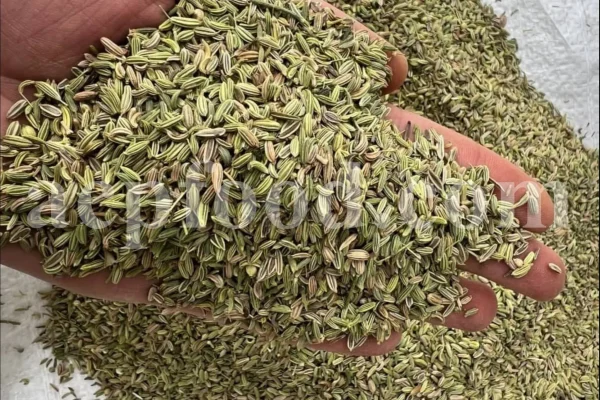

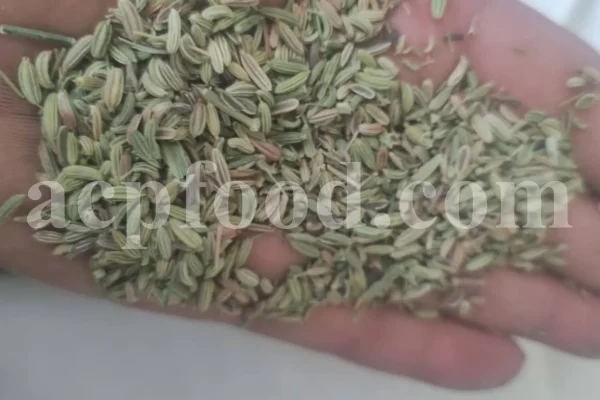
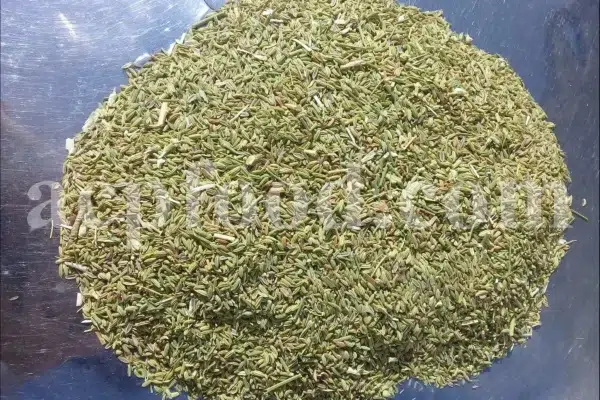
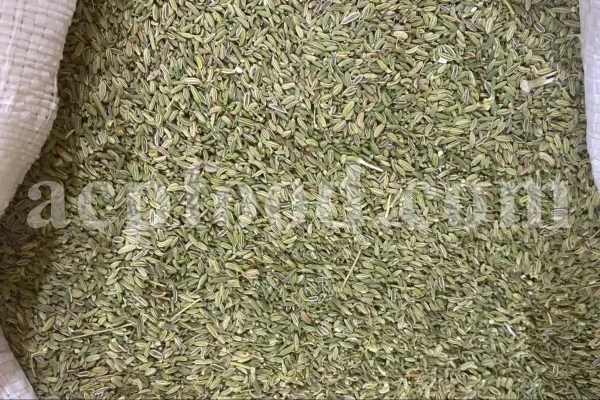
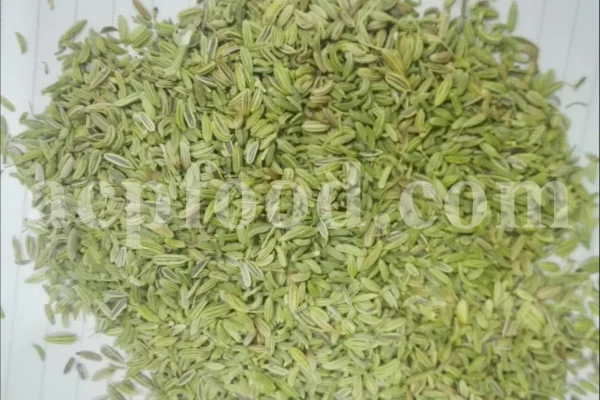
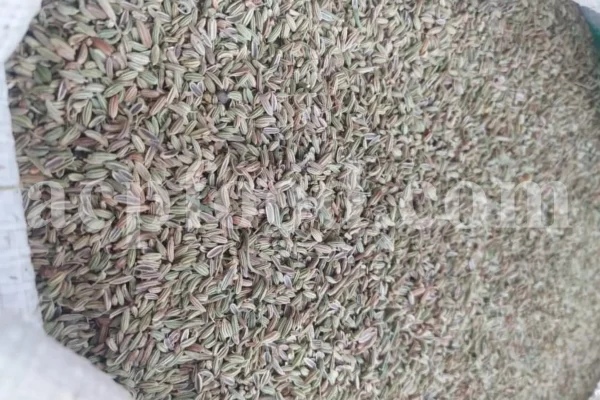
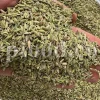
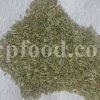
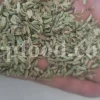
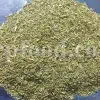
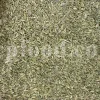
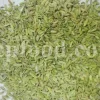

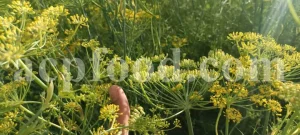
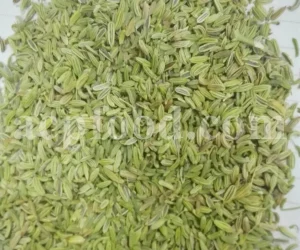
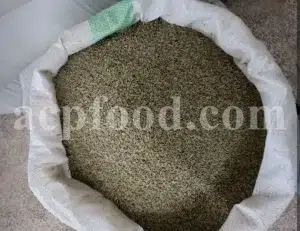
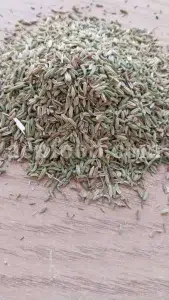
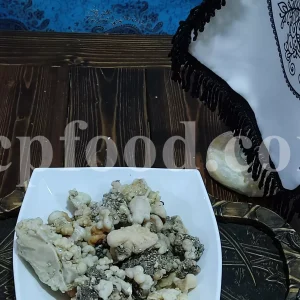
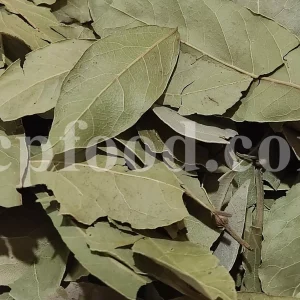

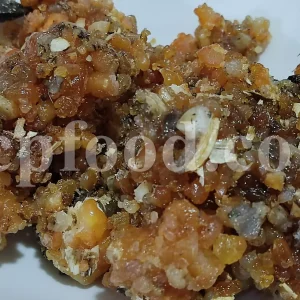
Reviews
There are no reviews yet.